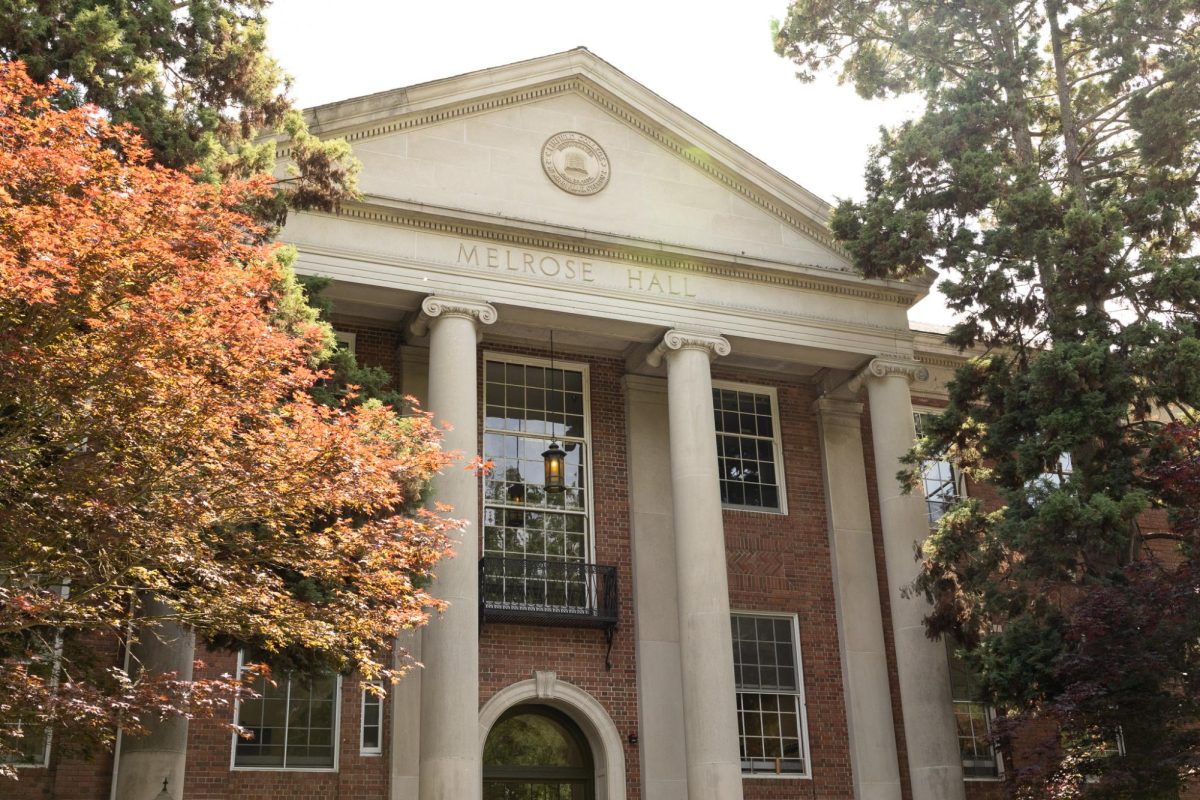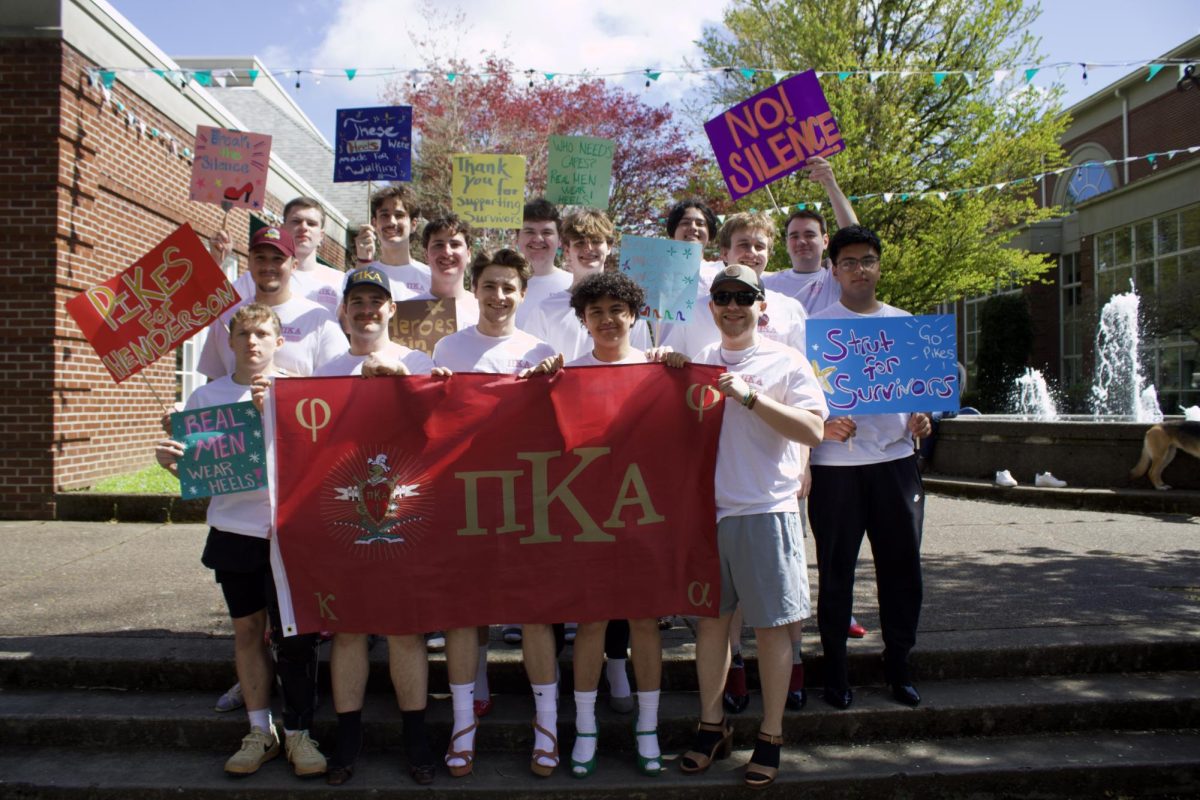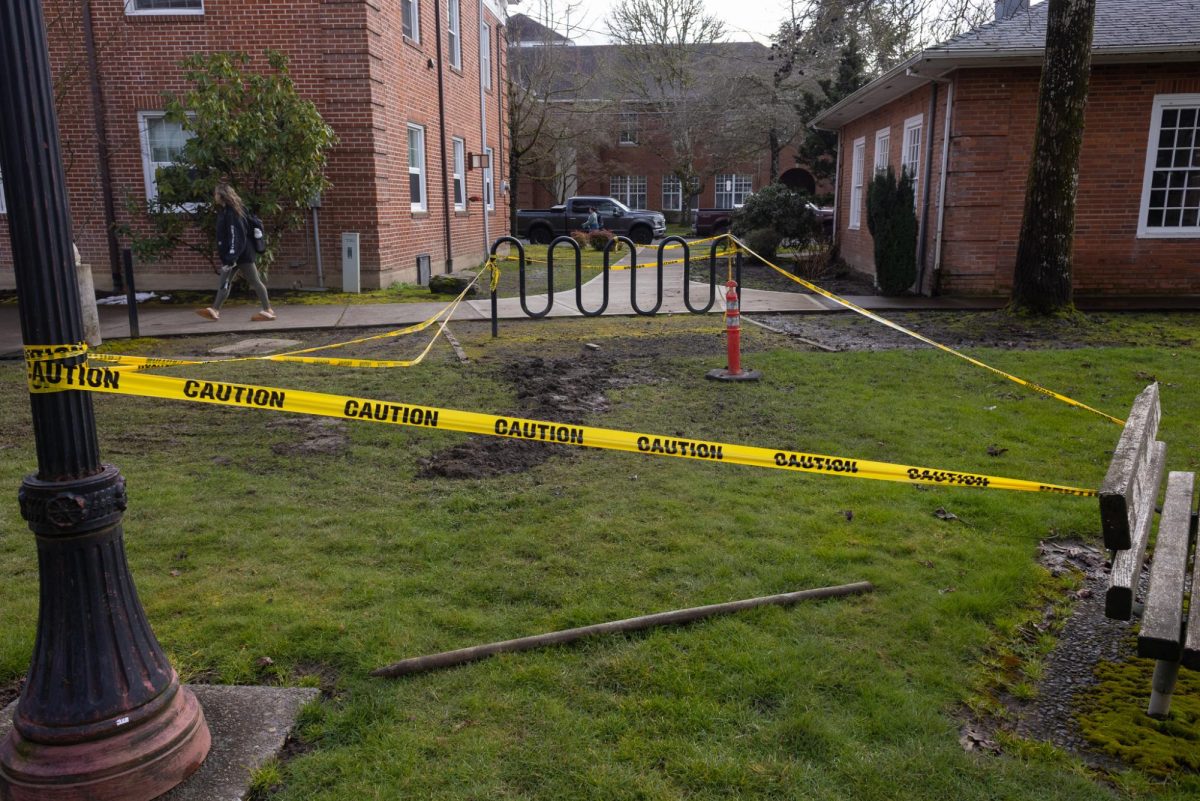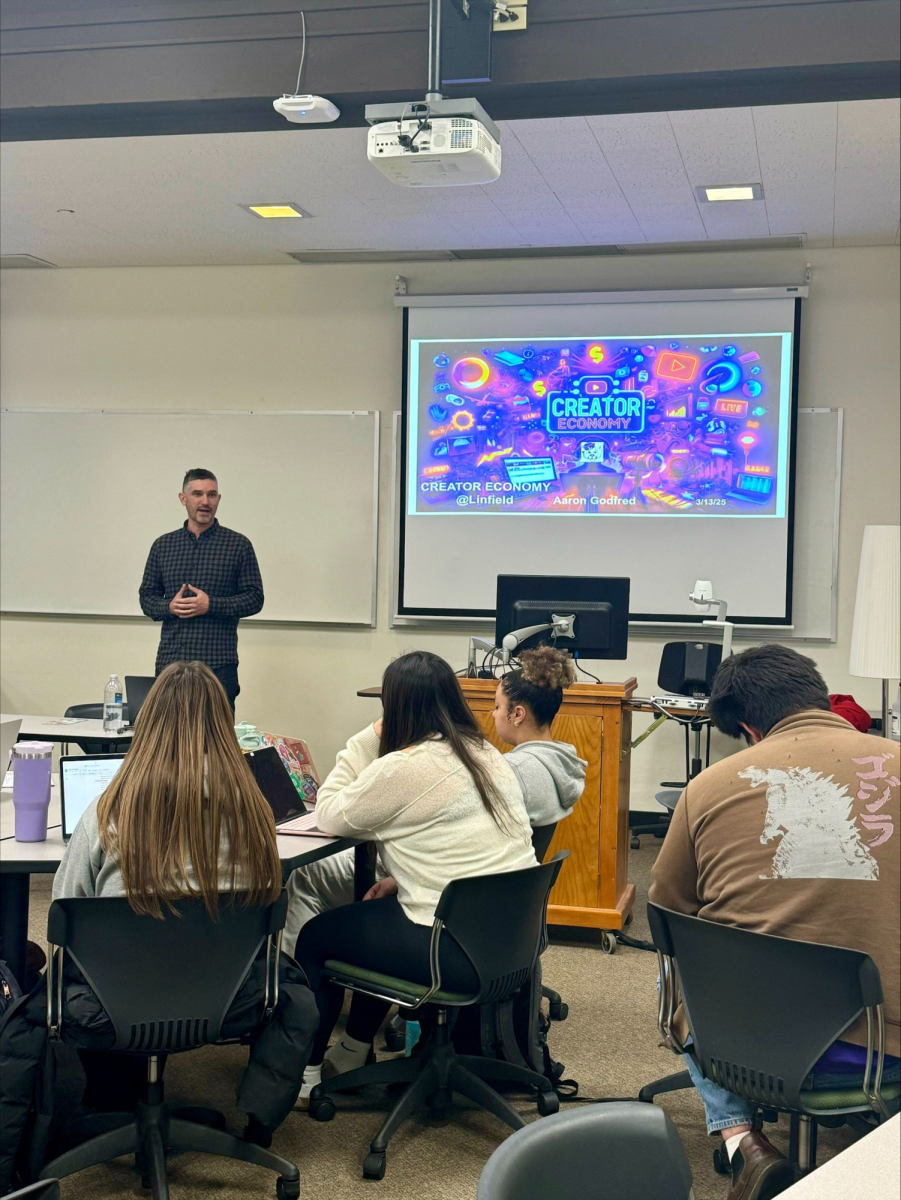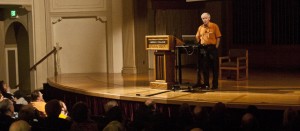
Kroto is now one of several prestigious individuals, including the groundbreaking Chemist Linus Pauling, who have enriched the Linfield community at an Oregon Nobel Laureate Symposium.
“The lecture-symposium was scheduled two years ago,” Director of Communications Mardi Mileham.
She mentioned that Kroto was selected to participate in the symposium by Dr. Fred Ross who retired from Linfield last spring.
Kroto is well-known for the co-discovery of the form of carbon now known as Buckminsterfullerene, or, “buckyballs” in 1985. This molecule is a spherical arrangement of 60 carbons in a pattern that resembles the stitching on soccer balls.
Up until its discovery, only two stable forms of carbon, graphite and diamond, were known to exist, Professor of Chemistry Thomas Reinert said.
He said this third stable form of carbon changed the way chemists thought about carbon and the bonds between atoms. Chemists learned that this form of carbon occurs in the universe, naturally. “It’s not just made up in a lab,” Reinert said.
Kroto discussed the importance of science and scientific education in his lecture that was interspersed with humorous remarks.
Kroto based his lecture on a quote that says science is the only thing we have to determine the truth to any degree of reliability.
“Science, for me, is a way of life,” Kroto said. He applied his scientific philosophy to several matters such as sustainability and indoctrination. Kroto stressed the importance of questioning everything and seeking evidence to support claims. He considers the acceptance of facts without evidence dangerous.
Kroto explained his “four out of five method.” He stated if you make an observation, make a hypothesis; if four out of five observations are in line with the hypothesis, you are “almost certainly right.”
Kroto’s current project is to try to teach science globally by using the Internet to share educational videos.
Professor of English Lit David Sumner commented on Kroto’s scientific emphasis saying that the sciences and humanities should work hand in hand. “A combination of the two is essential,” he said.
Senior Craig Geffre praised Kroto for his call to the researchers of natural sciences to be mindful of ethics and the outcome of their research. Kroto cited atomic bombs as examples of weapons that should not be further researched.
“Anthropologists and sociologists are careful in deliberating what the outcome of our research will be. I thought it was great that he emphasized ethics,” said Geffre.
For more information about Dr. Sir Harold Kroto and the discovery of buckminsterfullerene visit www.nobelprize.org.
Michele Wong/For the Review
Michele Wong can be reached at [email protected].

